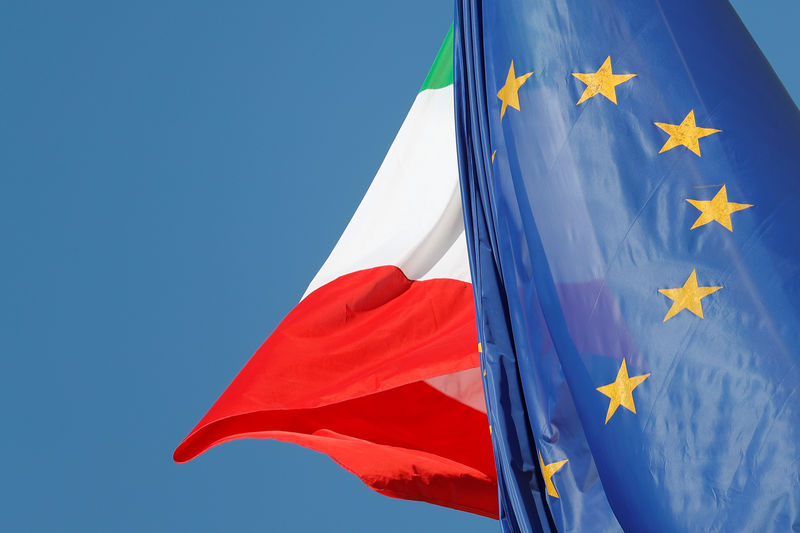[ad_1]
© Reuters.
BRUSSELS (Reuters) -Italy’s draft 2023 budget draft, drawn up by its new government, is overall in line with policies agreed by EU governments, the European Commission said on Wednesday, noting that it did also have several drawbacks.
The Commission’s opinion is part of a formal process in the EU under which the EU executive checks every year if draft budgets of euro zone countries for the following year comply with EU rules.
The “overall verdict is positive with some critical remarks,” said European Economics Commissioner Paolo Gentiloni, a former Italian prime minister, adding Rome has shown the necessary prudence in the budget measures.
If the draft budget is seen as breaking the rules, the Commission can send it back and request a new one.
“Overall, Italy’s updated Draft Budgetary Plan is in line with the Council Recommendations of July 2022: Italy limits the growth of nationally financed primary current expenditure and it plans to finance public investment for the green and digital transitions, and for energy security,” the Commission said.
Italian Prime Minister Giorgia Meloni said the Commission has expressed a “positive assessment that confirms the good work of the Italian government, underlines the solidity of the budget and reaffirms the vision of development and growth that guides it.”
The budget is currently making its way through parliament, with the aim of getting it approved by the end of the year despite a raft of amendments. It focuses on curbing sky-high energy bills and cutting taxes for payroll workers and the self-employed.
“Italy should better target energy measures to reduce demand and help the most vulnerable,” European Commission Vice President Valdis Dombrovskis said in a post on Twitter.
PAYMENTS ISSUE
The Commission added that Italy had not yet made progress on laws to reform its taxation system to further reduce taxes on labour and increase the efficiency of the system.
“Moreover, Italy’s updated draft budgetary plan includes measures that are not consistent with the structural part of previous fiscal recommendations, namely in the area of pensions and tax evasion, including on the compulsory use of e-payments and the legal thresholds for cash payments,” it said.
The government wants to remove punishments for retailers who refuse to take card payments for items costing less than 60 euros and also raise the maximum legal threshold for cash payments to 5,000 euros.
The Italian economy minister was also satisfied with Brussels’ judgement despite its caveats.
“Italy is included in the half of the European countries that are on the right track. This result is a great satisfaction,” Giancarlo Giorgetti said in a statement.
[ad_2]
Image and article originally from www.investing.com. Read the original article here.

